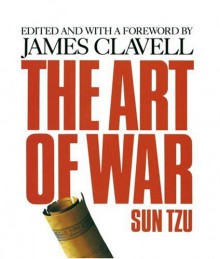If you know the enemy and know yourself, you need not fear the result of a hundred battles. If you know yourself but not the enemy, for every victory gained you will also suffer a defeat. If you know neither the enemy nor yourself, you will succumb in every battle....These are the words of...
show more
If you know the enemy and know yourself, you need not fear the result of a hundred battles. If you know yourself but not the enemy, for every victory gained you will also suffer a defeat. If you know neither the enemy nor yourself, you will succumb in every battle....These are the words of ancient Chinese philosopher Sun Tzu, whose now-classic treatise, The Art of War, was written more than 2,500 years ago. Originally a text for victory on the battlefield, the book has vastly transcended its original purpose.Here is a seminal work on the philosophy of successful leadership that is as applicable to contemporary business as it is to war. Today many leading American business schools use the text as required reading for aspiring managers, and even Oliver Stone's award-winning film Wall Street cites The Art of War as a guide to those who strive for success.Now acclaimed novelist James Clavell, for whom Sun Tzu's writing has been an inspiration, gives us a newly edited Art of War. Author of the best-selling Asian saga consisting of Shogun, Tai-Pan, Gai-jin, King Rat, Noble House, and Whirlwind, Clavell first heard about Sun Tzu in Hong Kong in 1977, and since then The Art Of War has been his constant companion--he refers to it frequently in Noble House. He has taken a 1910 translation of the book and clarified it for the contemporary reader. This new edition of The Art Of War is an extraordinary book made even more relevant by an extraordinary editor.
show less






 5 years ago
5 years ago




 5 years ago
5 years ago